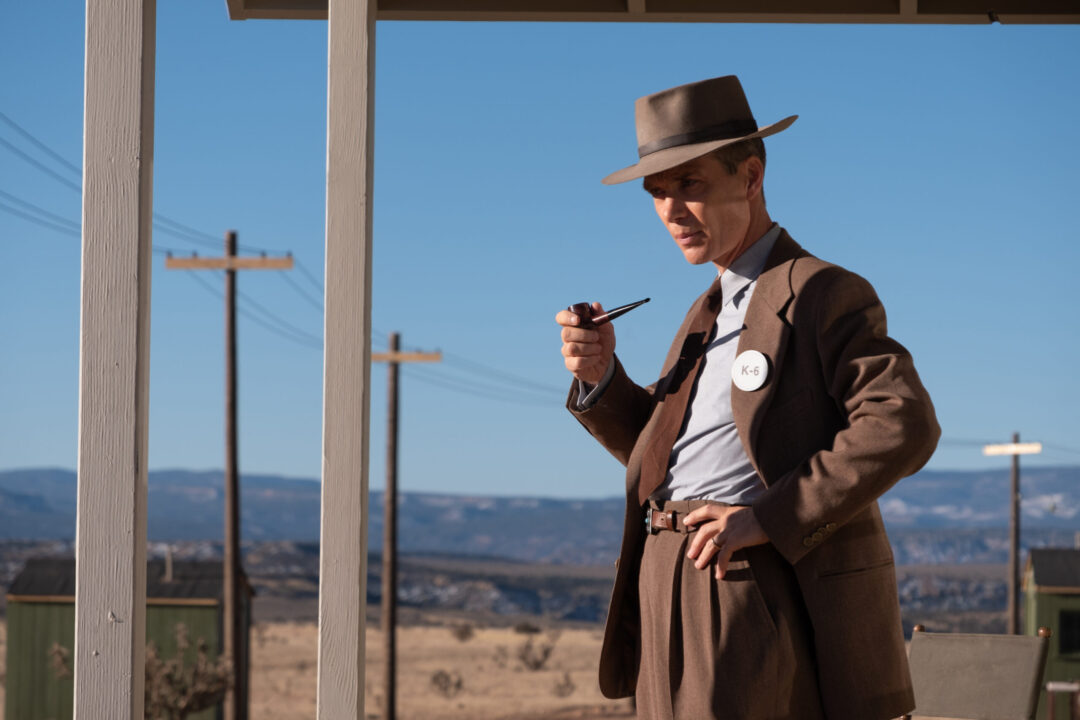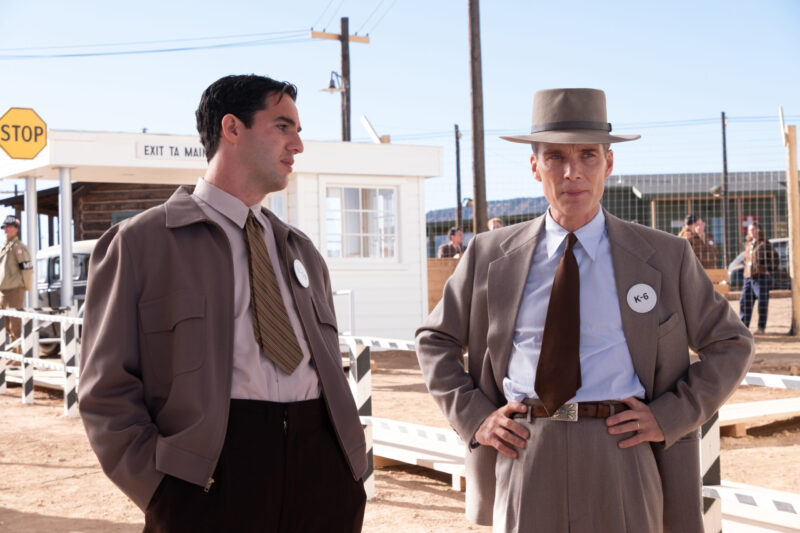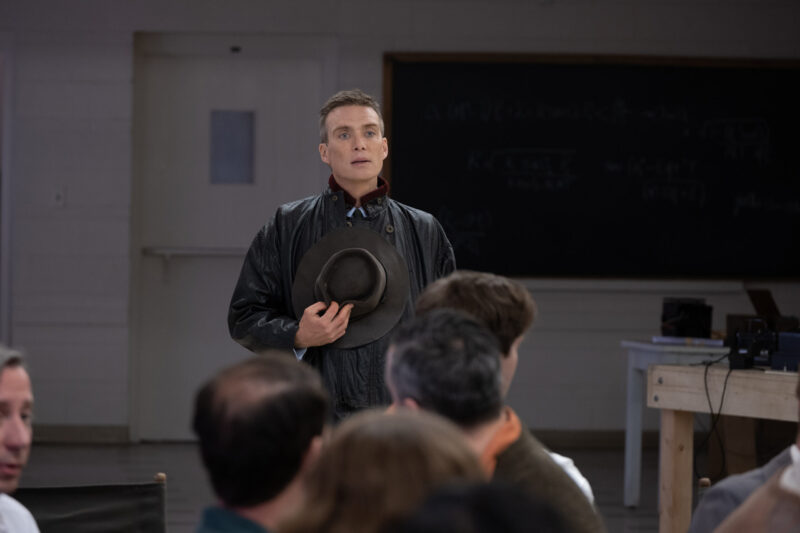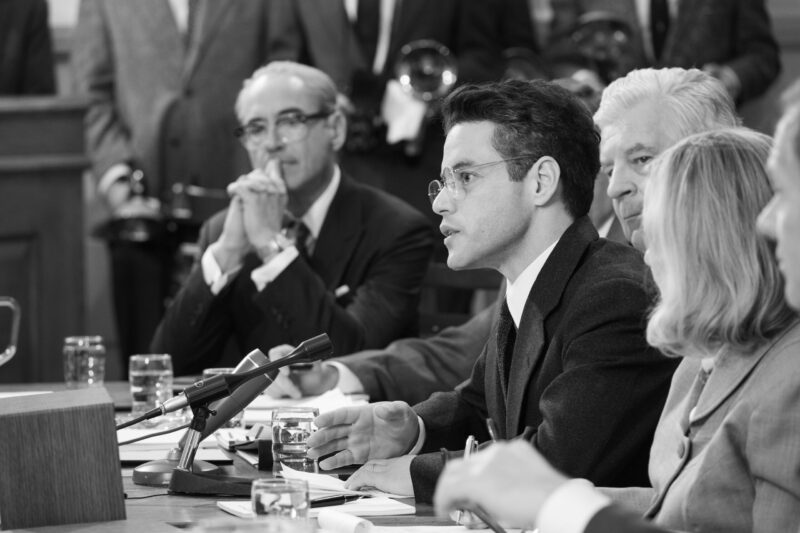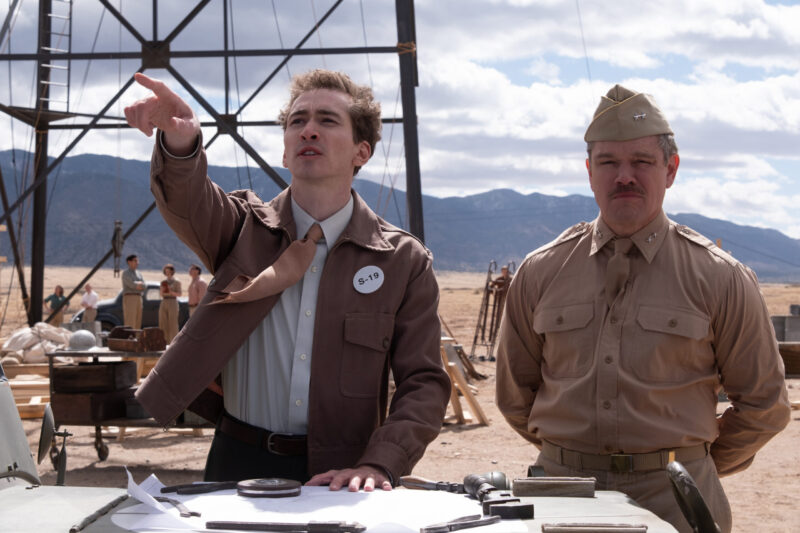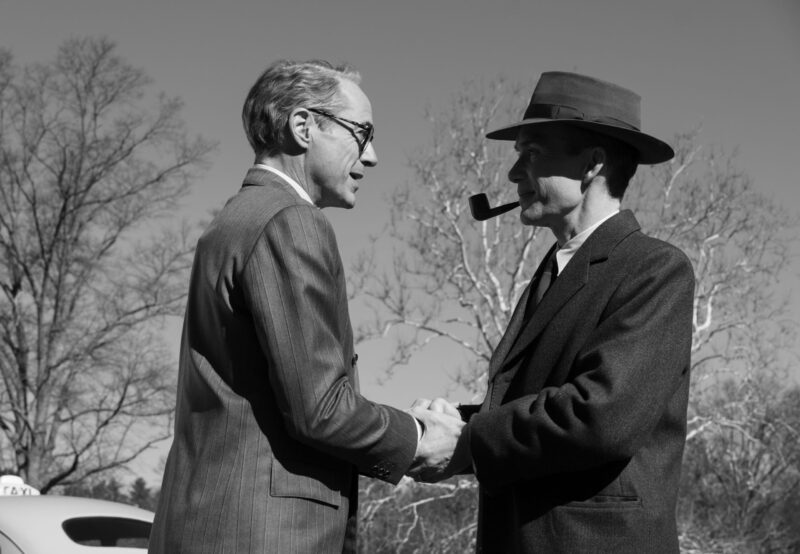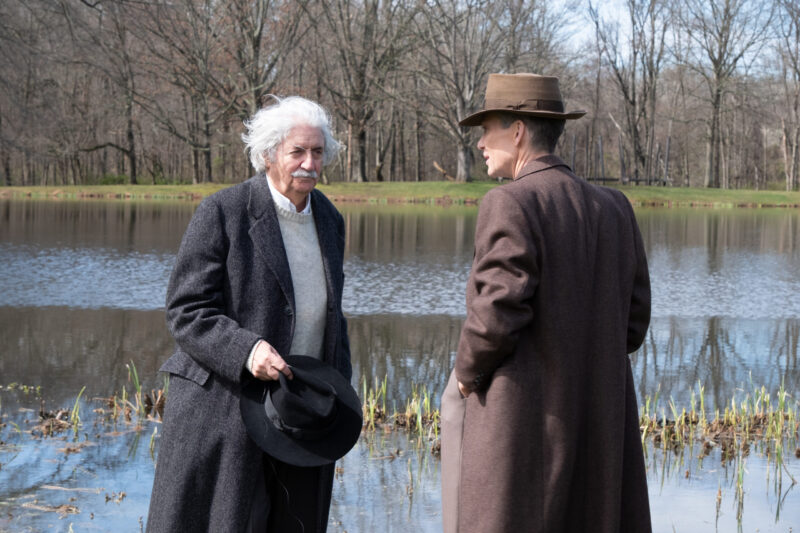“How can I save my little boy / From Oppenheimer’s deadly toy?” Sting sang in the song “Russians” in 1985 on his first solo album – a lyric that also inspired James Cameron to create the character John Connor for Terminator 2. You can’t separate weapons of mass destruction like nuclear and hydrogen bombs from dystopian scenarios like the end of the world, nuclear winter and the fear of the extinction of the entire human race. Christopher Nolan (The Dark Knight Rises, Inception, Interstellar, Tenet) certainly doesn’t do that in his magnificent full-length film about the man who led the Manhattan Project and created the first atomic bombs: Robert Oppenheimer. Played by a Cillian Murphy never seen better than here.
From the very beginning of his physics career, it was clear to everyone around him that Oppenheimer was a brilliant scientist. Even Einstein and Niels Bohr (Kenneth Branagh) admired him. He was offered leadership positions in several faculties, but chose to travel to Europe to study the new quantum mechanics, which American physicists at the time had little interest in. He brought it back to the US, where it gradually gained ground, thanks in part to Oppenheimer’s inspiring university courses on the subject.
Political!
Despite his left-wing tendencies, everyone considered Oppenheimer the obvious choice for the Manhattan Project’s top job, and posterity has, by and large, had no reason to disagree with this choice. But what is clear to posterity was not equally clear at a time when communist fears and McCarthyism were on the rise, and it’s actually these fraught political circumstances that Nolan’s blockbuster film is, somewhat surprisingly, mainly concerned with.
If you think this film is mostly about the Manhattan Project itself and the scientific history of the creation of the atomic bombs, think again. It’s a film that ambitiously sets out to provide a full biographical account of Oppenheimer as a person and what his beliefs and morals really were – something that historians have long debated – as well as how his contemporaries and contemporaries affected his public reputation and legacy. The film is concerned with the question: what was the moral integrity and character of the man who created the atomic bombs?
And the film also finds, or suggests, an answer. An answer that seems realistic and convincing, as it – like the film – is based on the biography “American Prometheus: The Triumph and Tragedy of J. Robert Oppenheimer” by Martin Sherwin and Kai Bird. Published in 2005, the biography is based on over a quarter of a century of research into Oppenheimer’s life and interviews with the people around him. As the title suggests, the book proposes that Oppenheimer is a modern-day Prometheus who stole fire from the gods and was then punished for it. This is exactly what the film, and Nolan, aims to illustrate.
Typical Nolan (in the best of ways!)
Nolan, as a true auteur, has written the script for his film himself, and he (naturally!) tells the story in a non-linear fashion, with numerous jumps in time, black and white sequences, and a narrative style that confuses at first, but starts to make revelatory sense in the last quarter of the three-hour film. It’s a storytelling technique that Nolan is known for, but hasn’t always succeeded with. Many might find it a little too confusing in the director’s previous film, Tenet, for example.
But in Oppenheimer, it works in the story’s favour. No specific details will be revealed here, but Oppenheimer could have become a much more vocal advocate for international agreements on the limitation of nuclear weapons and the peaceful utilisation of science and technology, perhaps in the vein of Carl Sagan and Richard Feynman.
But he was born a few decades too early and fell victim to the corruption and paranoia of American politicians in the 1940s and 50s, who were afraid his progressive voice would have too much influence. Narrow-minded politicians exploited him for as long as they needed him. But instead of rewarding him for his service afterwards, they feared, shamed and undermined him, so the media didn’t listen to him, and he ended up as an agonised shadow of what he should have been: one of the most important scientific debaters of his time.
Demonstrating this is one of Nolan’s greatest achievements, making Oppenheimer one of the director’s most important and by far his best films: it makes us feel the pulse of history.
This is especially emphasised by Swedish Ludwig Göransson’s soundtrack, which repeatedly pushes a roaring background music into the foreground, so that the tension curves of the various key scenes lead smoulderingly to almost overwhelmingly violent crescendos. Quite simply impressively effective – and a major contributing factor to the top rating of 6 stars.
Oppenheimer premiered on 21 July.
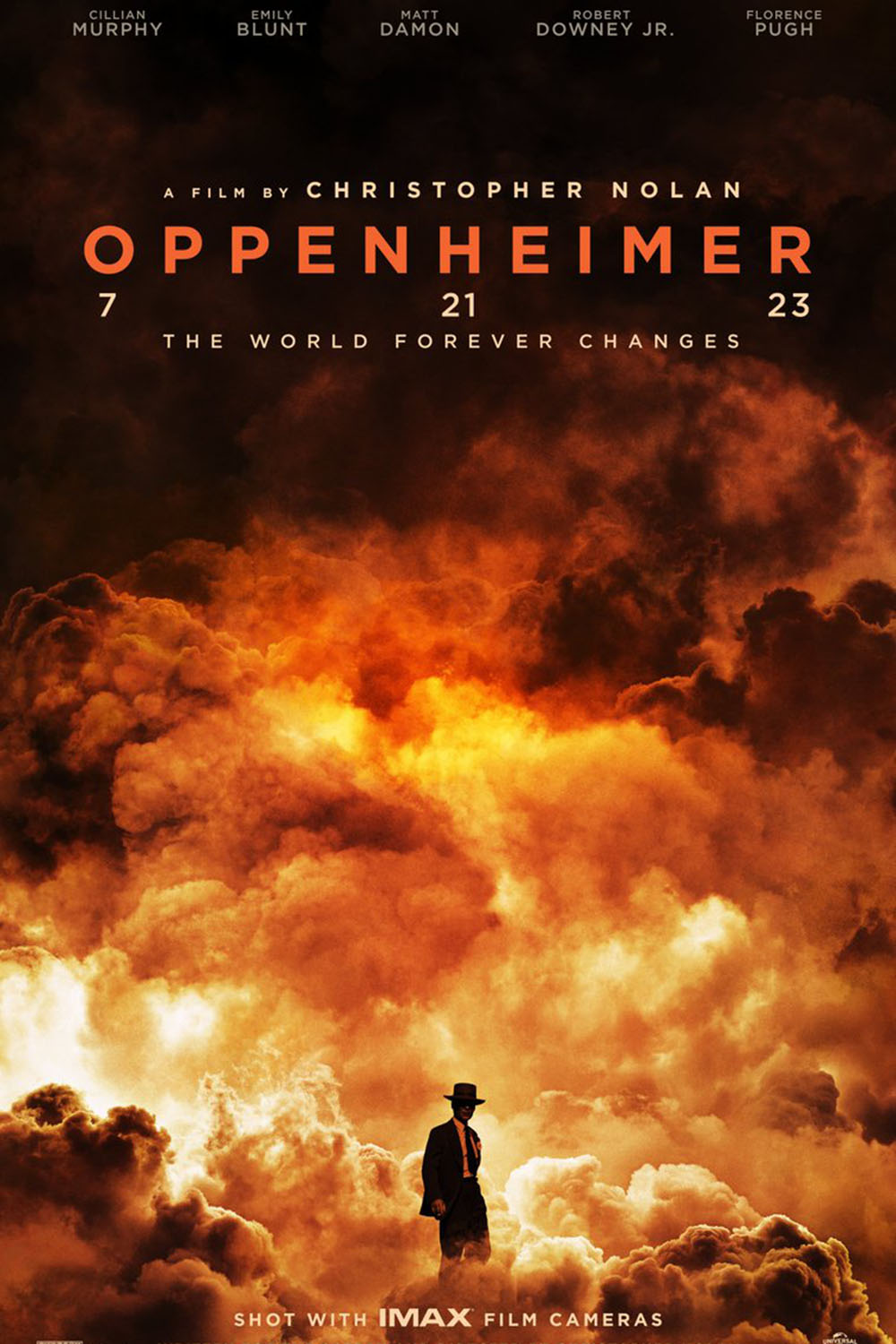

Facts:
- Premiere: 21 July 2023
- Directed by: Christopher Nolan
- Starring: Cillian Murphy, Robert Downey Jr, Emily Blunt, Florence Pugh, Kenneth Branagh, Matt Damon, and more.
- Genre: Biography/Drama
- Country: USA
- Year: 2023
- Time: 3:00 hrs.
- Rating: 6
- IMDb: https://www.imdb.com/title/tt15398776
